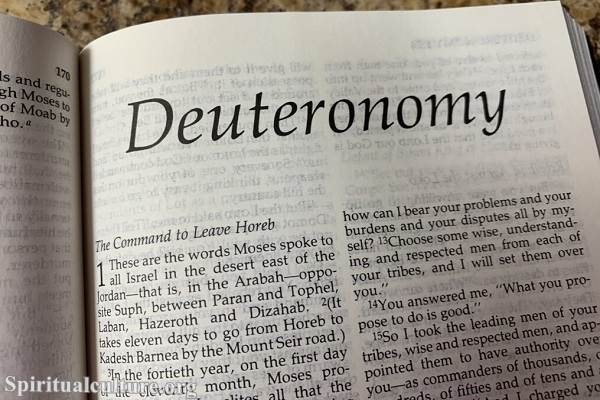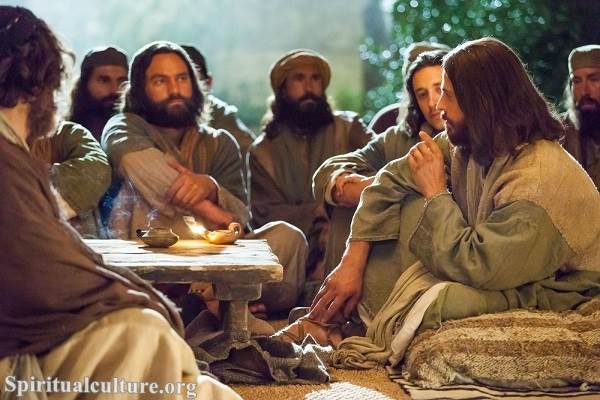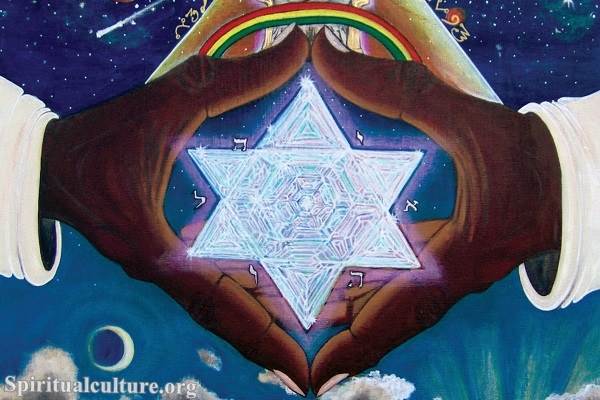In every generation, amid the scrolls and the synagogue, the marketplace and the mourning house, there walks a figure whose presence carries quiet weight: the rabbi. To some, the rabbi is a scholar. To others, a counselor. To many, a bridge between tradition and the present moment. But beyond any single function, the rabbi embodies something deeper — the living transmission of a people’s sacred path.
This article explores the role of a rabbi within Jewish communities across time and tradition. From ancient roots to modern expressions, we’ll see how rabbis serve not merely as religious leaders, but as guides of conscience, culture, and collective memory. We’ll reflect on their spiritual duties, their educational mission, and their evolving place in the diverse tapestry of Jewish life today.
The Origin of the Title “Rabbi”
A Word with Ancient Weight
The term “rabbi” comes from the Hebrew root rav, meaning “great” or “master.” In ancient times, the word indicated respect — “my master” or “my teacher.” Unlike prophets or priests of the biblical era, the rabbi emerged after the destruction of the Second Temple in 70 CE, as Jewish life shifted from Temple sacrifice to Torah study and prayer. Without a central sanctuary, the people turned to text and tradition — and those who could teach them.
From Oral Law to Rabbinic Leadership
The rabbis became the interpreters and transmitters of the Oral Law, which was later compiled in the Mishnah and Talmud. They did not claim prophetic vision, but deep understanding. They did not inherit priesthood, but earned respect through learning, wisdom, and moral stature. In many ways, the rabbi arose not to replace the Temple, but to shepherd a scattered people through study and spiritual resilience.
The Rabbi as Teacher (Moreh)
Lifelong Learning as Spiritual Practice
At the heart of rabbinic identity is Torah study — not only knowing it, but teaching it. A rabbi is first and foremost a moreh, or teacher. They lead classes in Hebrew texts, offer sermons (drashot) interpreting the weekly Torah portion, and help others wrestle with the ethical questions embedded in tradition.
The Talmud says: “Whoever teaches Torah to the child of another is as if they gave birth to that child” (Sanhedrin 19b). This metaphor speaks volumes — a rabbi’s role is generative. Through teaching, they birth understanding and faith.
Teaching Across Ages and Settings
Rabbis may teach:
- Children in religious school or bar/bat mitzvah preparation
- Teens and young adults exploring their identity
- Adults seeking conversion or deeper Jewish knowledge
- Congregants engaging in weekly Torah study or holiday reflections
Whether in a formal classroom, a coffee shop, or a hospital bedside, the rabbi remains a teacher of meaning.
The Rabbi as Spiritual Leader (Manhig Ruchani)
Leading Prayer and Ritual
While any Jew can lead prayer in theory, in practice, the rabbi often guides communal worship. In synagogues, rabbis:
- Lead Shabbat and holiday services
- Deliver sermons that offer insight and inspiration
- Officiate weddings, funerals, baby namings, and bar/bat mitzvahs
- Serve as halakhic authorities, guiding how Jewish law is applied in daily life
In these moments, the rabbi doesn’t simply perform a role — they hold sacred space. They help mark time with holiness, whether in joy or in grief.
Pastoral Care and Presence
A rabbi is also a shepherd of souls. They visit the sick, console the bereaved, and offer presence during personal crisis. Sometimes this means prayer. Other times, just a listening ear.
The Torah tells us that Moses was a shepherd before he led the people. So too, the rabbi leads not with force, but with compassion — one conversation at a time.
The Rabbi as Ethical Guide
Interpreting Jewish Law and Values
Rabbis are trained not just in ritual, but in halakha — Jewish law. But halakha is not merely about rules; it’s about living ethically in a complex world. Rabbis help people apply ancient principles to modern dilemmas:
- Is it ethical to invest in this company?
- How should I approach organ donation or fertility treatments?
- What’s a Jewish response to environmental crisis?
In this way, rabbis serve as conscience-guides, drawing wisdom from tradition without ignoring modern realities.
Standing for Justice
Throughout history, rabbis have often stood at the moral forefront of their communities — advocating for the oppressed, speaking out against injustice, and reminding society of shared responsibility.
The prophet Micah’s words echo in their calling: “What does the Lord require of you? To act justly, love mercy, and walk humbly with your God” (Micah 6:8).
The Rabbi in Different Denominations
Orthodox Rabbis
In Orthodox Judaism, rabbis focus heavily on halakhic interpretation and strict adherence to tradition. Their authority often includes:
- Deciding legal questions
- Overseeing kosher practices
- Serving only male rabbis (in most Orthodox settings)
Some Orthodox communities still see the rabbi as a decisive authority on community matters, almost like a judge.
Conservative Rabbis
Conservative rabbis balance tradition with modern adaptation. They may:
- Use historical-critical methods to understand Torah
- Permit certain changes in ritual or practice
- Ordain both men and women as rabbis
They maintain strong ties to halakha but interpret it through the lens of evolving context.
Reform and Reconstructionist Rabbis
In Reform and Reconstructionist Judaism, rabbis are more pastoral and educational leaders than legal authorities. They emphasize:
- Personal autonomy in religious practice
- Gender equality and inclusion
- A spiritual and ethical reading of Jewish tradition
These rabbis often serve as cultural and community builders, shaping Jewish identity in creative and diverse ways.
The Changing Role in Modern Times
From Authority to Partnership
In many contemporary communities, the rabbi is no longer seen as a distant figure on a pedestal, but as a partner in the spiritual journey. Congregants want rabbis who are relatable — who ask questions as much as they offer answers.
The best rabbis today are not just learned, but authentic. They’re willing to say “I don’t know” — and then learn with you.
Rabbis Beyond the Synagogue
Today’s rabbis may serve in:
- Hospitals (as chaplains)
- Universities (as Hillel directors)
- Social justice organizations
- Online communities and podcasts
- Interfaith and civic leadership roles
Wherever Jews gather — physically or digitally — rabbis adapt to meet them there.
Sacred Texts About the Rabbi’s Role
Let us consider several traditional teachings that shine light on the rabbi’s role:
“Make for yourself a teacher, acquire for yourself a friend, and judge every person favorably.”
— Pirkei Avot 1:6
This passage reflects the rabbi as both teacher and companion — someone who educates and walks alongside.
“The words of the wise are like goads, and their collected sayings like firmly embedded nails—given by one Shepherd.”
— Ecclesiastes 12:11
Here, the teachings of rabbis are seen as guiding and grounding — a source of direction and stability.
Real-Life Impact: Stories of Rabbinic Guidance
A Wedding and a Loss
In one small town, a young couple preparing for their wedding faced unexpected tragedy — the groom’s mother passed away just days before. Their rabbi didn’t simply reschedule the ceremony. She sat with them in their grief, helped them hold memory and joy together, and created a ritual that honored both mourning and hope.
That’s the role of a rabbi — not just to conduct the service, but to hold the soul of the moment.
A Child’s Question
A boy once asked his rabbi: “Why did God make mosquitoes?” Rather than laugh or dismiss, the rabbi smiled and said, “That’s a holy question — maybe they remind us to stay awake.” The boy never forgot that moment. He grew up seeing questions as spiritual, not silly.
Sometimes, rabbis plant seeds that blossom years later.
Reflect and Reimagine
The role of a rabbi in Jewish communities is not fixed in stone but carved in the rhythms of relationship, learning, and faith. At their best, rabbis are not gatekeepers, but door-openers — helping others walk the path of Torah with wisdom, courage, and compassion.
Whether seated at the study table, standing at a hospital bed, or walking alongside during a protest for justice, the rabbi’s presence affirms: Judaism is alive. It speaks to our world. And it matters.
So if you’ve ever wondered what rabbis really do — or why they matter — look not only at the pulpit, but at the people whose lives they’ve touched. The answer is found in those stories, in those moments, and in the sacred bridge between heart and tradition that every true rabbi strives to build.




